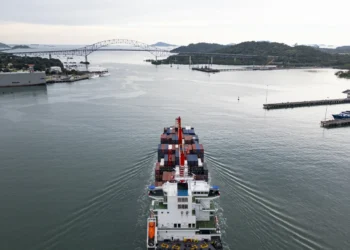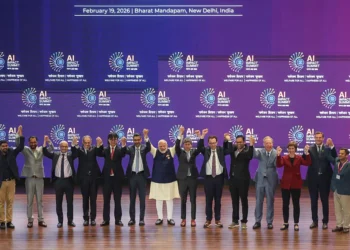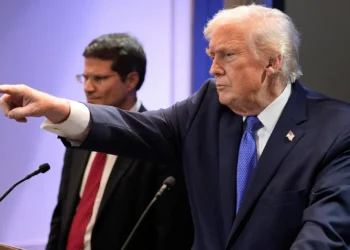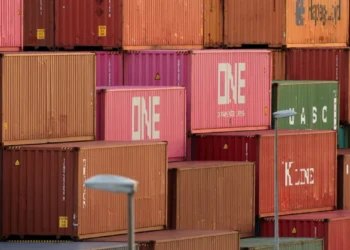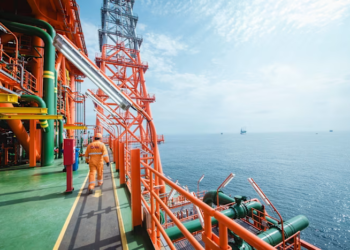ISTANBUL (Realist English). Saddam Hifter, commander of Libya’s eastern ground forces and son of Khalifa Hifter, made his second visit to Turkey in four months this week, underscoring Ankara’s accelerating efforts to cultivate ties with Libya’s eastern-based leadership — a key move toward securing full ratification of a contested maritime agreement signed with Tripoli in 2019.
The visit, which included a meeting with Turkish Defense Minister Yaşar Güler on the sidelines of the IDEF-2025 defense expo in Istanbul, comes just weeks after Libya’s eastern parliament formed a committee to revisit the 2019 maritime accord. If ratified, the deal would solidify Turkey’s claims over parts of the eastern Mediterranean and grant it legal leverage in disputed maritime zones contested by Greece, Cyprus, and Egypt.
Ankara originally signed the deal with Libya’s UN-recognized Government of National Unity (GNU), but expanding it to include eastern Libya would lend it national legitimacy — a crucial step in Turkey’s broader strategy in the region.
From confrontation to courtship
Turkey’s evolving relationship with the Hifter camp marks a stark reversal from its previous posture. In 2019, Ankara intervened militarily to support the Tripoli-based government, helping to repel Hifter’s siege on the capital. At the time, Turkish officials branded the Libyan commander a “war criminal.” Today, his son is a welcomed guest in Istanbul.
“This reflects Turkey’s long game in the eastern Mediterranean,” said Soner Cagaptay of the Washington Institute. “Ankara sees Libya — including the east — as essential to securing maritime access and projecting influence.”
The 2019 maritime agreement effectively redraws boundaries between Turkey and Libya, bypassing the continental shelf claims of Greek islands. Though condemned by the EU, it remains central to Turkey’s ambitions for energy exploration and regional leverage.
Political calculus in Benghazi
Analysts say Khalifa Hifter is using the maritime deal as a bargaining chip — a way to gain international legitimacy, extract economic concessions, and secure greater cooperation from Europe. According to Anas El Gomati of the Sadeq Institute, “Benghazi’s pivot is strategic. By engaging with Ankara, Hifter opens diplomatic channels and increases his influence over migration policy and regional security.”
The shift is already bearing fruit. Turkish Airlines resumed direct flights to Benghazi in January, and Turkish firms are gradually reentering eastern Libya’s reconstruction and energy sectors. Hifter has also engaged with Greek Foreign Minister Giorgos Gerapetritis, signaling openness to broader negotiations on maritime and migration issues.
EU caution, Turkish gains
While EU leaders continue to label the 2019 accord “legally invalid,” observers note that Brussels’ leverage is waning. Europe increasingly depends on Libya — particularly the east — to curb migration flows, and Ankara’s normalization with Athens and Brussels has reduced tensions over the deal.
Meanwhile, Turkey has quietly rolled back energy exploration in contested waters, focusing instead on diplomacy and investment. Sinan Ülgen, head of Istanbul’s Center for Economics and Foreign Policy Studies, described the potential ratification as a “political win” for Ankara that’s unlikely to provoke the firestorm seen in 2019.
Balancing Tripoli and Benghazi
Despite growing ties with Benghazi, Ankara has not distanced itself from the Tripoli-based GNU, led by Prime Minister Abdul Hamid Dbeibah, whose authority has been increasingly undermined by protests and factional violence.
A senior Turkish Foreign Ministry source told Al-Monitor that Ankara remains committed to Libya’s “territorial integrity and political unity” and supports the UN-led peace process.
Still, the optics of Hifter’s visit — and Turkey’s expanding economic footprint in eastern Libya — point to a strategic recalibration. With Washington’s long-term security commitments under scrutiny, and Europe seeking stronger ties with Turkey, Ankara appears poised to entrench itself as a decisive power broker in both Libya’s future and the wider Mediterranean balance.



